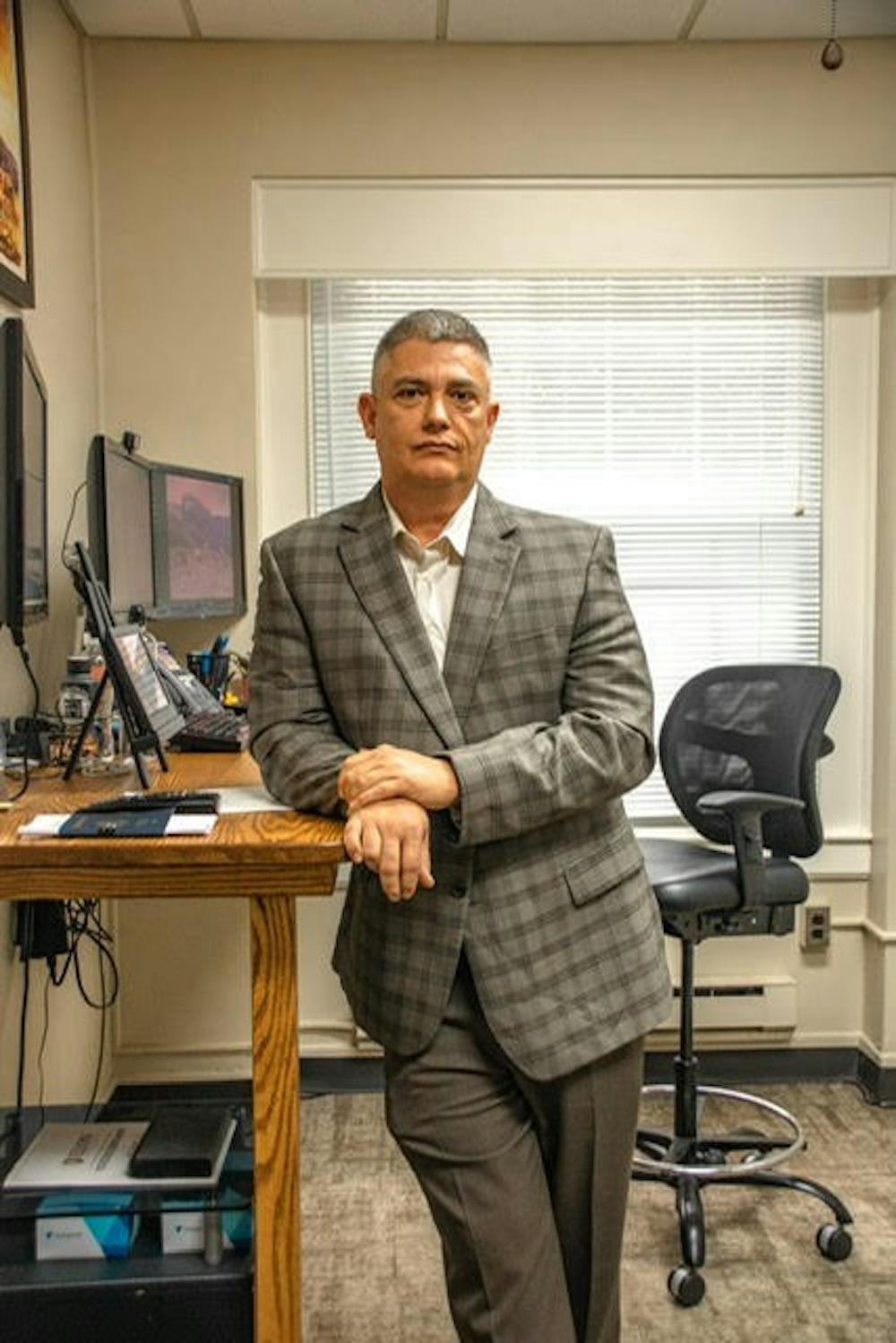For students, even the most laid out plans don’t always come to fruition during course registration. However, according to Laura Kappert, director of enterprise solutions at Elon University, the school is designing a new system that will help students plan effectively.
A redesigned degree audit system is set to appear on OnTrack, the university’s student housing, advising and academic portal.
Kappert says the system is a year away from completion.
According to University Registrar Rodney Parks, the new degree audit system will transfer students’ comprehensive four-year graduation plans onto OnTrack.
“Right now, you’re basically just getting cleared for one semester, and then you’re registering for all those classes,” Parks said. “In the future, students will actually be able to see this four-year plan in the system. When it comes time for registration, you see your four classes or five classes, and the thinking is that you just move those to a confirmed schedule.”
Traditionally, students have experienced issues finding sections of their desired classes that fit their schedules.
Parks explained that the new system will help students register for their ideal class schedule because there will be enough sections to accommodate them.

Rodney Parks, the Elon University registrar, is helping spearhead the updating of the new OnTrack system, which is expected to launch next year.
Departments will have the necessary information to determine how many sections of a class they need to offer based on the number of students who have planned for it on their degree audits.
Sophomore Sarah McClelland, an elementary education major, said this new system should decrease the frustration and confusion students feel during registration.
“They can manipulate their schedules so you don’t have to sacrifice taking one class a semester because it doesn’t line up with other classes that you have to take,” McClelland said.
However, according to Bud Warner, associate professor and chair of the department of human service studies, asking all students to create a four-year plan on OnTrack could become problematic.
“I’m not a big fan, personally, of putting the four-year plans in,” Warner said. “I love undecided students. We talk about students coming to a university like Elon and exploring things, but tell them here, create a four-year plan when you don’t know what you’re going to major in and put it in your degree audit. That seems like you’re working in different directions.”
Jean Schwind, professor and chair of the department of English, also feels that asking freshmen to plan their college careers may limit their chances for self-discovery.
“I know that it’s a luxury, because college is so expensive that you don’t want to be here for more than four years, but I like some room for exploration,” Schwind said. “I’m not sure that I would have been able to create a four-year plan in my freshman year, and I’m not sure that that’s a healthy thing.”
For students who are preparing to graduate, the new degree audit may alert them to one key course before it’s too late.
According to Warner, the university has always required students to complete a senior comprehensive requirement in their major, but it will soon be appearing on their degree audit, usually as a zero-credit course beginning with the numbers 07.
The senior comprehensive requirement varies by department; human service studies and business majors complete an exam, while English and statistics majors submit a portfolio.
Parks mentioned that the new degree audit system will use a new four-digit course catalog.
“You’re going to see a lot of that work on the course numbers over the next few months into fall,” Parks said. “Once we have the four-digit course number in place, we can make the transition to the new degree audit system.”
Schwind said that identifying courses with four digits instead of three might help to distinguish different sections of the same course.
“I like the four digits because right now there are too many umbrella courses,” Schwind said. “In my department we have something called English 255: Topics of Literature. There could be 40 variations of that course, and it’s hard for students to repeat 255 even if you have a very different topic because of the way the computer reads it. You can have two courses with the exact same course number, so they assume that the second take is replacing the first course because you want a better grade.”
According to Kappert, the benefits of Elon’s new degree audit could extend beyond the screen and into students’ relationships with their advisers.
“You create that four-year plan with an Elon 101 adviser, but that often isn’t going to be your major adviser,” Kappert said. “It could provide that transition a little bit better.”
Kappert’s department, enterprise solutions, is responsible for supporting both the current and new degree audit systems.
While it’s still early in the planning process, Kappert’s team has not yet identified any major concerns with the technology.
“Typically with any project we do, we do a lot of testing and always try and engage various perspectives, both from a student perspective as well as a faculty perspective so that we can hear any concerns that might be out there and try and provide education to make that more understandable,” Kappert said. “That’s just part of any roll out that we ever do, and we try and get that representation so that it’s a seamless transition hopefully.”

